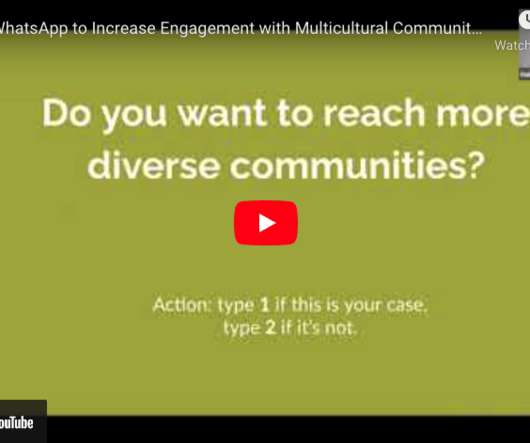Giving Trends in Brazil: How Crowdfunding & Social Entrepreneurs Are Transforming the Nonprofit Sector
Nonprofit Tech for Good
NOVEMBER 14, 2018
According to the Institute of Applied Economic Research , there are 820,000 existing NGOs, also know as ONGs (organizaciónes no gubernamentales), in Brazil. What would you like the world to know about NGOs and fundraising in Brazil? But small causes here in Brazil make a very big difference in social impact.












Let's personalize your content